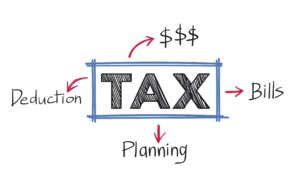
Title: Tax Planning for Small Businesses: Setting Up an Effective Strategy
Introduction
Tax planning is a crucial aspect of running a small business. With the right strategy in place, small business owners can optimize their tax liabilities, maximize deductions, and ensure compliance with tax laws. In this blog post, we will explore the importance of tax planning for small businesses and provide practical tips on setting up an effective tax strategy.
1. Understanding the Tax Landscape
To create an effective tax planning strategy, small business owners must have a solid understanding of the tax landscape. This includes being aware of relevant tax laws, regulations, and deadlines. It is essential to stay updated with any changes or updates in tax legislation that may impact your business.
2. Choosing the Right Business Structure
The choice of business structure can significantly affect your tax obligations. Whether you opt for a sole proprietorship, partnership, LLC, or corporation, each structure has its own tax implications. Consulting with a tax professional can help you determine the most advantageous structure for your business, considering factors such as liability protection and tax benefits.
3. Maintaining Accurate Records
Accurate record-keeping is a fundamental aspect of effective tax planning. Keep organized records of all income, expenses, receipts, and financial transactions. This documentation will serve as evidence in case of an audit and will help you claim all eligible deductions.
4. Maximizing Deductions and Credits
Identifying and maximizing deductions and credits is a key component of tax planning for small businesses. Consult with a tax professional to understand the deductions and credits that apply to your business. Some common deductions include business-related expenses, depreciation, and home office deductions. Taking advantage of these deductions and credits can help reduce your taxable income.
5. Implementing Retirement Plans
Contributing to a retirement plan not only helps secure your financial future but can also provide significant tax benefits for small business owners. Explore options such as Simplified Employee Pension (SEP) IRAs, Solo 401(k)s, or SIMPLE IRAs. These plans allow you to make tax-deductible contributions, potentially lowering your taxable income.
6. Quarterly Estimated Tax Payments
Small business owners are often required to make quarterly estimated tax payments to avoid penalties and interest charges. By estimating your tax liability throughout the year and making timely payments, you can spread out your tax obligations and avoid a large tax bill at the end of the year. Working with a tax professional can help you determine the appropriate amount for your estimated tax payments.
7. Collaborating with a Tax Professional
Navigating the complexities of tax planning can be challenging for small business owners. Collaborating with a qualified tax professional who specializes in working with small businesses can provide invaluable guidance and expertise. A tax professional can help you develop a tailored tax strategy, stay compliant with tax laws, and optimize your tax savings.
Conclusion
Tax planning is a vital part of running a small business. By setting up an effective tax strategy, small business owners can minimize tax liabilities, maximize deductions, and ensure compliance with tax laws. Remember to stay informed about tax regulations, maintain accurate records, and seek guidance from a tax professional. Implementing a proactive tax planning approach will not only benefit your business financially but also provide peace of mind as you navigate the complex world of taxes.[gallery_p_gallery id=””]
